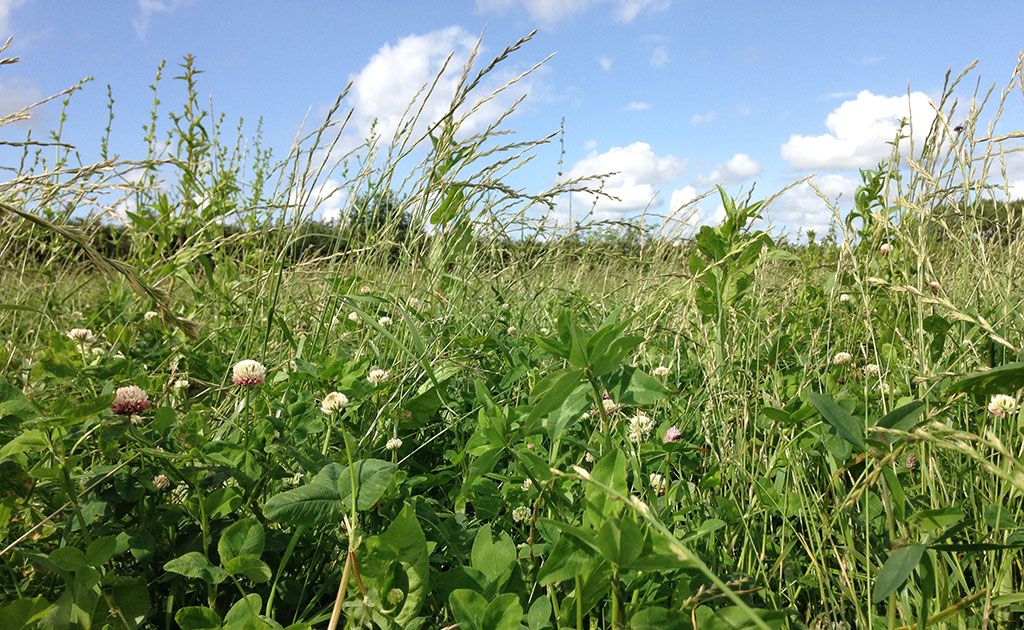This project aimed to support and promote the use of multi-species swards, particularly in Cornwall. It is a collaborative project between the Rural Business School at Duchy College and Rothamsted Research North Wyke.
The majority of Cornwall’s farmed land is grassland, typically ryegrass and clover. But multi-species swards, also known as herbal leys or diverse forages, offer many potential benefits for grassland production. To find out more, visit the Diverse Forages page here.
There is growing interest in the use of multi-species swards, but limited information available on establishment, management and proven economic benefits. This particularly true in Cornwall, as a lot of research to date is not relevant to the environmental and economic conditions prevalent in the county.
The Toolbox of Multi-species Swards has three main areas of work:
- A programme of field research on commercial farms in Cornwall
- The development of a multi-media toolkit on establishment and management
- A farmer survey of the perceived benefits and barriers to uptake
Field research commenced on eight farms in July 2018 and aims to:
- Compare performance of a highly diverse species mixture (known as ‘TOMS’) against a perennial ryegrass and white clover sward and the farmer’s standard ley
- Compare forage nutritional quality and micronutrient content of the different swards
- Compare soil leaching resulting from the different swards, on a select number of farms
- Undertake pollinator surveys during a 5 week ‘shut-off’ period on a select number of farms
In addition, work at Rothamsted is investigating the impact of species composition, sowing rate and seedbed preparation on forage quality and quantity. Rothamsted are also defining and analysing the silage made from multi-species swards, including work to determine optimum mixtures and conditions.
Farmers drilled experimental sward mixtures in autumn 2018, following soil surveys. The project team conducted the first species surveys and forage collection in spring 2019, prior to farm grazing and silage cuts. Work is also underway on the multi-media toolkit, with an academic literature review nearing completion and design for an app and all-weather reference guide in progress.
For further information, contact Gemma Eales: gemma.eales@duchy.ac.uk


